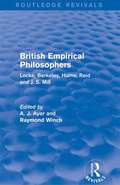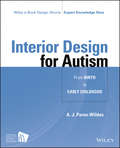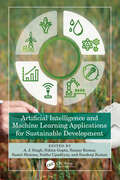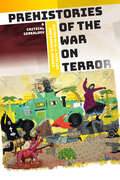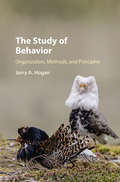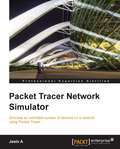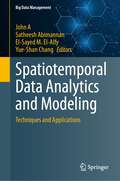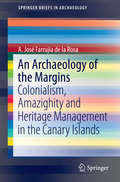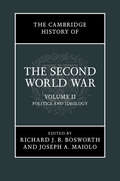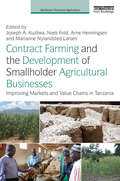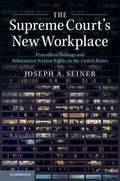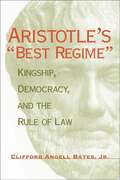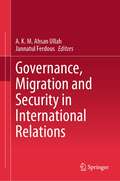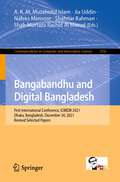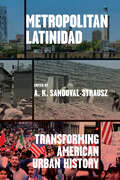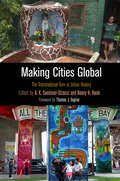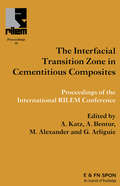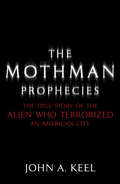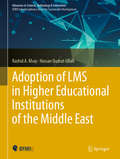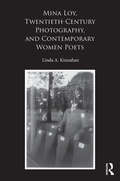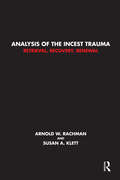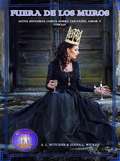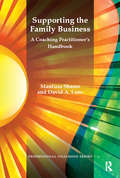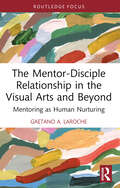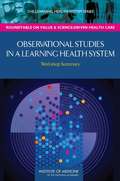- Table View
- List View
British Empirical Philosophers: Locke, Berkeley, Hume, Reid and J. S. Mill. [An anthology] (Routledge Revivals)
by A. J. Ayer and Raymond WinchFirst published in 1952, British Empirical Philosophers is a comprehensive picture of one of the most important movements in the history of philosophic thought. In his introduction, Professor A. J. Ayer distinguishes the main problems of empiricism and gives a critical account of the ways in which the philosophers whose writings are included in this volume attempted to solve them. Editors Ayer and Raymond Winch bring together an authoritative abridgement of John Locke’s Essay Concerning Human Understanding; Bishop George Berkeley’s Principles of Human Knowledge; almost the entire first book of David Hume’s Treatise Concerning Human Nature; and extracts from Thomas Reid’s Essay on the Intellectual Powers of Man and John Stuart Mill’s Examination of Sir William Hamilton’s Philosophy.
Interior Design for Autism from Birth to Early Childhood
by A. J. Paron-WildesInterior Design for Austism from Birth to Early Childhood gives designers who are creating spaces for individuals with Autism, the exact information they need to create optimal spaces that can have a positive impact on special learning and sensory needs. This book also shows how to implement specific design strategies that can be employed in their own projects. Projects covered relate specifically to the age ranges from birth through early childhood, including schools, homes, and clinical therapy settings. The main neurofunctions of Autism are covered along with specific design techniques that can be used to address each one. Information on toxins and material selection is also included.
Artificial Intelligence and Machine Learning Applications for Sustainable Development
by A. J. Singh, Nikita Gupta, Sanjay Kumar, Sumit Sharma, Subho Upadhyay, and Sandeep KumarThe book highlights how technologies including artificial intelligence and machine learning are transforming renewable energy technologies and enabling the development of new solutions. It further discusses how smart technologies are employed to optimize energy production and storage, enhance energy efficiency, and improve the overall sustainability of energy systems.This book: Discusses artificial intelligence-based techniques, namely, neural networks, fuzzy expert systems, optimization techniques, and operational research Showcases the importance of artificial intelligence and machine learning in the energy market, demand analysis, and forecasting of renewable energy applications Illustrates strategies for sustainable development using artificial intelligence and machine learning applications Presents applications of artificial intelligence in the domain of electronics transformation and development, smart cities, and renewable energy utilization Highlights the role of artificial intelligence in solving problems such as image and signal processing, smart weather monitoring, smart farming, and distributed energy sources It is primarily written for senior undergraduates, graduate students, and academic researchers in diverse fields, including electrical, electronics and communications, energy, and environmental engineering.
Prehistories of the War on Terror: A Critical Genealogy (Power, Politics, and the World)
by A. J. Yumi Lee and Karen R. MillerReveals fundamental continuities between the contemporary War on Terror and earlier U.S. imperial conflictsPrehistories of the War on Terror examines the longstanding American project of classifying enemies who challenge U.S. power abroad as terrorists. To do so, the volume brings disparate episodes of U.S. military empire-building into dialogue across time and space. From settler colonial wars in the nineteenth-century American West to twentieth-century wars of conquest in Asia and the Pacific, the collection’s essays argue that the United States has drawn both materially and ideologically on older systems of empire in the conflicts through which it has waged the present-day War on Terror.Attending to the local histories from which these conflicts emerged and examining the effects of U.S. intervention in these sites, contributors analyze the cultural frameworks for understanding and remembering past conflicts that confirm, challenge, or refigure the logics of the War on Terror. This volume reveals how contestations over sovereignty, extraction, and inequality must be suppressed and flattened in public discourse to maintain a coherent vision of a totalizing War on Terror. Together, the contributors illustrate that there was no single road that led to 9/11 or the War on Terror. Rather, they argue that we must follow multiple paths into the past to fully understand our present and to fight for a more just future.Contributors: Moustafa Bayoumi, Joo Ok Kim, Janne Lahti, A. J. Yumi Lee, Naveed Mansoori, Karen R. Miller, Kalyan Nadiminti, Tim Roberts, Colleen Woods.
The Study of Behavior: Organization, Methods, and Principles
by Jerry A. HoganBehavior studies now span a variety of sub-disciplines, including behavioral ecology, neuroscience, cognitive psychology and evolutionary developmental biology. While the fields' rapid growth has led to startling new insights into animal behavior, it has brought increasingly fragmented approaches to the subject. Integrating ideas and findings from a range of disciplines, this book provides a common framework for understanding diverse issues in behavior studies. The framework is derived from classical ethology, incorporating concepts and data from research in experimental psychology, neurophysiology and evolutionary biology. Hogan outlines the origin and development of major ideas and issues in the field, drawing on examples throughout to highlight connections across sub-disciplines. Demonstrating how results in one area can directly inform work in others, the book ultimately proposes concepts to facilitate new discussions that will open the way for improved dialog between researchers across behavior studies.
Packet Tracer Network Simulator
by Jesin AA practical, fast-paced guide that gives you all the information you need to successfully create networks and simulate them using Packet Tracer. Packet Tracer Network Simulator is aimed at students, instructors, and network administrators who wish to use this simulator to learn how to perform networking instead of investing in expensive, specialized hardware. This book assumes that you have a good amount of Cisco networking knowledge, and it will focus more on Packet Tracer rather than networking.
Spatiotemporal Data Analytics and Modeling: Techniques and Applications (Big Data Management)
by John A Satheesh Abimannan El-Sayed M. El-Alfy Yue-Shan ChangWith the growing advances in technology and transformation to digital services, the world is becoming more connected and more complex. Huge heterogeneous data are generated at rapid speed from various types of sensors. Augmented with artificial intelligence and machine learning and internet of things, latent relations, and new insights can be captured helping in optimizing plans and resource utilization, improving infrastructure, and enhancing quality of services. A “spatial data management system” is a way to take care of data that has something to do with space. This could include data such as maps, satellite images, and GPS data. A temporal data management system is a system designed to manage data that has a temporal component. This could include data such as weather data, financial data, and social media data. Some advanced techniques used in spatial and temporal data management systems include geospatial indexing for efficient querying and retrieval of location-based data, time-series analysis for understanding and predicting temporal patterns in datasets like weather or financial trends, machine learning algorithms for uncovering hidden patterns and correlations in large and complex datasets, and integration with Internet of Things (IoT) technologies for real-time data collection and analysis. These techniques, augmented with artificial intelligence, enable the extraction of latent relations and insights, thereby optimizing plans, improving infrastructure, and enhancing the quality of services. This book provides essential technical knowledge, best practices, and case studies on the state-of-the-art techniques of artificial intelligence and machine learning for spatiotemporal data analysis and modeling. The book is composed of several chapters written by experts in their fields and focusing on several applications including recommendation systems, big data analytics, supply chains and e-commerce, energy consumption and demand forecasting,and traffic and environmental monitoring. It can be used as academic reference at graduate level or by professionals in science and engineering related fields such as data science and engineering, big data analytics and mining, artificial intelligence, machine learning and deep learning, cloud computing, and internet of things.
An Archaeology of the Margins: Colonialism, Amazighity and Heritage Management in the Canary Islands (SpringerBriefs in Archaeology)
by A. José Farrujia de la RosaThis book analyses the problematics of archaeological heritage management in the Canary Islands, which are echoed in other parts of the world where the indigenous heritage is under-represented. The present-day management of Canarian archaeological heritage has a very specific and unusual context given that the archipelago is located on the fringes of Europe, belonging to Spain and therefore to the European Unión, but geographically and in terms of early history being part of Africa. From a theoretical perspective, then, the proposed book analyzes issues such as the effects of colonialism and eurocentrism on the management of the archaeological heritage. It also examines the evolutionist and historico-cultural models used to analyze past societies and, ultimately, used to create identities that influence archaeological heritage management itself. From a practical point of view, the book presents a proposal for enhancing the archaeological heritage of the Canary Islands through the creation of archaeological parks (providing some concrete examples in the case of the city of La Laguna) and the active involvement of the local community. Parallel to this, the book considers the Canarian Archipelago as part of a problematic that is not unique to this area but is an example of poor indigenous heritage management overall. It demonstrates how the course of history and the politics of the past still have an excessive influence on the way in which the present-day archaeological heritage is interpreted and managed. Therefore, this book provides an almost unique opportunity for uncovering the history of archaeology within the margins of Europe (in fact, in an African region) and exploring colonial and foreign influences. In many ways it is a mirror of archaeological mainstreams and an exercise in (re)thinking the aim and status of present-day archaeology.
The Cambridge History of The Second World War: Politics and Ideology (The\cambridge History Of The Second World War Ser.)
by Joseph A. Bosworth Joseph A. Maiolo Richard J. B. MaioloWar is often described as an extension of politics by violent means. With contributions from twenty-five eminent historians, Volume 2 of The Cambridge History of the Second World War examines the relationship between ideology and politics in the war's origins, dynamics and consequences. Part I examines the ideologies of the combatants and shows how the war can be understood as a struggle of words, ideas and values with the rival powers expressing divergent claims to justice and controlling news from the front in order to sustain moral and influence international opinion. Part II looks at politics from the perspective of pre-war and wartime diplomacy as well as examining the way in which neutrals were treated and behaved. The volume concludes by assessing the impact of states, politics and ideology on the fate of individuals as occupied and liberated peoples, collaborators and resistors, and as British and French colonial subjects.
Contract Farming and the Development of Smallholder Agricultural Businesses: Improving markets and value chains in Tanzania (Earthscan Food and Agriculture)
by Joseph A. Kuzilwa Fold Niels Henningsen Arne Marianne Nylandsted LarsenContract farming has received renewed attention recently as developing economies try to grapple with how to transform the agricultural sector and its associated value chains. This book examines different contract arrangements for selected crops, applying both qualitative and quantitative approaches in order to examine how contract farming affects smallholders and value chain dynamics in Tanzania. Major themes covered in the book include: contract farming policy; contract farming and value chain dynamics; contract farming adoption decisions; contract farming and income diversification. The authors also discuss alternative aspects of contract farming such as trust, conspiracy, empowerment and corporate social responsibility. The book presents original research from case studies conducted in Tanzania on sugarcane, tobacco, sunflower and cotton. These crops have a history of trials and errors with contract farming involving smallholders. Furthermore, they are targeted in national strategies as some of the main crops for establishment and upgrading of agro-industrial activities in Tanzania.
The Supreme Court’s New Workplace: Procedural Rulings and Substantive Worker Rights in the United States
by Joseph A. SeinerThe US Supreme Court has systematically eroded the rights of minority workers through subtle changes in procedural law. This accessible book identifies and describes how the Supreme Court's new procedural requirements create legal obstacles for civil-rights litigants, thereby undermining their substantive rights. Seiner takes the next step of providing a framework that practitioners can use to navigate these murky waters, allowing workers a better chance of prevailing with their claims. Seiner clearly illustrates how to effectively use his framework, applying the proposed model to one emerging sector - the on-demand industry. Many minority workers now face pervasive discrimination in an uncertain legal environment. This book will serve as a roadmap for successful workplace litigation and a valuable resource for civil-rights research. It will also spark a debate among scholars, lawyers, and others in the legal community over the use of procedure to alter substantive worker rights.
Aristotle's "Best Regime": Kingship, Democracy, and the Rule of Law (Political Traditions in Foreign Policy Series)
by Clifford A. Jr.The collapse of the Soviet Union and other Marxist regimes around the world seems to have left liberal democracy as the only surviving ideology, and yet many scholars of political thought still find liberal democracy objectionable, using Aristotle's Politics to support their views. In this detailed analysis of Book 3 of Aristotle's work, Clifford Angell Bates, Jr., challenges these scholars, demonstrating that Aristotle was actually a defender of democracy.Proving the relevance of classical political philosophy to modern democratic problems, Bates argues that Aristotle not only defends popular rule but suggests that democracy, restrained by the rule of law, is the best form of government. According to Aristotle, because human beings are naturally sociable, democracy is the regime that best helps man reach his potential; and because of human nature, it is inevitable democracies will prevail.Bates explains why Aristotle's is a sound position between two extremes -- participatory democracy, which romanticizes the people, and elite theory, which underrates them. Aristotle, he shows, sees the people as they really are and nevertheless believes their self-rule, under law, is ultimately better than all competing forms. However, the philosopher does not believe democracy should be imposed universally. It must arise out of the given cultural, environmental, and historical traditions of a people or its will fall into tyranny.Bates's fresh interpretation rests on innovative approaches to reading Book 3 -- which he deems vital to understanding all of Aristotle's Politics. Examining the work in the original Greek as well as in translation, he addresses questions about the historical Aristotle versus the posited Aristotle, the genre and structure of the text, and both the theoretical and the dialogic nature of the work. Carting Aristotle's rhetorical strategies, Bates shows that Book 3 is not simply a treatise but a series of dialogues that develop a nuanced defense of democratic rule.Bates's accessible and faithful exposition of Aristotle's work confirms that the philosopher's teachings are not merely of historical interest but speak directly to liberal democracy's current crisis of self-understanding.
Governance, Migration and Security in International Relations
by A. K. M. Ahsan Ullah Jannatul FerdousThe book deconstructs the interplay between governance, migration, international relations, and security as a complex and constantly evolving dynamic that has significant implications for individuals, societies, and nations around the world. This book shows that the connections between governance, migration, international relations, and security have become increasingly significant for several reasons. First, it unpacks how globalization has led to an unprecedented level of interconnectedness between nations, resulting in a need for increased understanding of how governance frameworks, migration patterns, and international relations impact security both within and between nations. Second, it shows that the movement of people across borders has become a significant challenge, with more people on the move now than at any time in human history. Third, it highlights the increasingly complex and interdependent nature of international relations, which requires a nuanced understanding of howdifferent actors, including governments, international organizations, and non-state actors, interact and influence each other. Fourth, the book addresses how security concerns have become increasingly pressing in today's world, with the rise of non-state actors, such as terrorist groups, as well as the proliferation of cyber threats. The book positions that an understanding of these dynamics, and their implications, is critical for both academics and policymakers, to build effective international partnerships and respond to global challenges such as climate change, pandemics, and economic crises. It is relevant to researchers across the social sciences, including development studies, international relations, global politics, migration, public health, and environmental policy.
Bangabandhu and Digital Bangladesh: First International Conference, ICBBDB 2021, Dhaka, Bangladesh, December 30, 2021, Revised Selected Papers (Communications in Computer and Information Science #1550)
by A. K. M. Muzahidul Islam Jia Uddin Nafees Mansoor Shahriar Rahman Shah Murtaza Rashid Al MasudThis book constitutes selected papers presented during the First International Conference on Bangabandhu and Digital Bangladesh, ICBBDB 2021, held in Dhaka, Bangladesh, in December 2021. Due to the COVID-19 pandemic the conference was partly held online. The 16 papers presented were thoroughly reviewed and selected from the 90 submissions. They present research in the areas of artificial intelligence, machine learning, image processing, blockchain technology, human-computer interaction, etc.
Metropolitan Latinidad: Transforming American Urban History (Historical Studies of Urban America)
by A. K. Sandoval-StrauszA wide-ranging collection of essays that centers Latinos in the history of American cities and suburbs. Latino urban history has been underappreciated not only in its own right but for the centrality of its narratives to urban history as a field. A scholarly discipline that has long scrutinized economics, politics, and the built environment has too often framed race as literally Black and white. This has resulted in a fundamental misunderstanding of the full social canvas of American cities since at least the early twentieth century. Traversing metropolitan areas like Atlanta, Chicago, El Paso, Fort Worth, Los Angeles, Miami, and New York, this collection of essays brings together both established and emerging scholars, including long-time urbanists and academics working in the fields of Latino, borderlands, political, landscape, and religious history. Organized at different scales—including city, suburb, neighborhood, and hemisphere—this impressive body of work challenges long-standing narratives about metropolitan America. The contributors—Llana Barber, Mauricio Castro, Eduardo Contreras, Sandra I. Enríquez, Monika Gosin, Cecilia Sánchez Hill, Felipe Hinojosa, Michael Innis-Jiménez, Max Krochmal, Becky M. Nicolaides, Pedro A. Regalado, Iliana Yamileth Rodriguez, and Thomas J. Sugrue—engage a diverse range of subjects, such as urban rebellions, the suburbanization of Latinos, affordable housing, labor, the built environment, transnationalism, place-making, and religious life. The scholars also explore race within Latino communities, as well as the role that political and economic dynamics have played in creating Latino urban spaces. After reading this book, you will never see American cities the same way again.
Making Cities Global: The Transnational Turn in Urban History
by A. K. Sandoval-Strausz Nancy H. Kwak Thomas J. SugrueIn recent decades, hundreds of millions of people across the world have moved from rural areas to metropolitan regions, some of them crossing national borders on the way. While urbanization and globalization are proceeding with an intensity that seems unprecedented, these are only the most recent iterations of long-term transformations—cities have for centuries served as vital points of contact between different peoples, economies, and cultures. Making Cities Global explores the intertwined development of urbanization and globalization using a historical approach that demonstrates the many forms transnationalism has taken, each shaped by the circumstances of a particular time and place. It also emphasizes that globalization has not been persistent or automatic—many people have been as likely to resist or reject outside connections as to establish or embrace them.The essays in the collection revolve around three foundational themes. The first is an emphasis on connections among the United States, East and Southeast Asia, Latin America, and South Asia. Second, contributors ground their studies of globalization in the built environments and everyday interactions of the city, because even world-spanning practices must be understood as people experience them in their neighborhoods, workplaces, stores, and streets. Last is a fundamental concern with the role powerful empires and nation-states play in the emergence of globalizing and urbanizing processes.Making Cities Global argues that combining urban history with a transnational approach leads to a richer understanding of our increasingly interconnected world. In order to achieve prosperity, peace, and sustainability in metropolitan areas in the present and into the future, we must understand their historical origins and development.Contributors: Erica Allen-Kim, Leandro Benmergui, Matt Garcia, Richard Harris, Carola Hein, Nancy Kwak, Carl Nightingale, Amy C. Offner, Margaret O'Mara, Nikhil Rao, A. K. Sandoval-Strausz, Arijit Sen, Thomas J. Sugrue.
Interfacial Transition Zone in Cementitious Composites
by A. Katz, A. Bentur M. Alexander G. ArliguieThis book addresses the need to resolve the ITZ's influence on engineering and durability characteristics of cementious composites, identifies the systems and properties that are affected by it, and quantifies these effects in order to prepare the base for engineering design tools. This volume presents the proceedings of the Second International RI
The Mothman Prophecies
by John A. KeelThis true account of the aliens who invaded the town of Point Pleasant, West Virginia - first published in 1975 - has been made into a major motion picture starring Richard Gere, Laura Linney and Alan Bates. For thirteen months Point Pleasant was plagued by a dark terror that culminated in a major disaster. Unearthly noises and ghostly lights in the sky gave way to mutilated animals, winged monsters, weird flying machines and worst of all, the fearsomely demonic 'Bird' - the Mothman. The story reads like a novel - but every single word of it is true and fully documented by John A. Keel, who spent a year in Point Pleasant where he saw and experienced many of the stranger manifestations personally.
Adoption of LMS in Higher Educational Institutions of the Middle East (Advances in Science, Technology & Innovation)
by Rashid A. Khan Hassan Qudrat-UllahThis book discusses the adoption of learning management systems (LMS) in higher education institutions. It presents influential predictors that may impact instructors’ behavioral intention to adopt learning management systems in the context of Arab culture, as well as a unique model of technology acceptance that draws on and combines previous technology adoption models (i.e., a modified unified theory of acceptance and use of technology model – UTAUT2). Moreover, this study extends the UTAUT2 model by including Hofstede’s (1980) cultural dimensions, and technology awareness as the moderators of the model. It also describes the explanatory technique approach used to collect quantitative data from the instructors at higher education institutions in Saudi Arabia and were analyzed with structural equation modeling using SPSS/Amos software. The findings revealed that facilitating conditions were the strongest predictor of behavioral intention to adopt an LMS, followed by performance expectancy and hedonic motivation, technology awareness, and cultural dimensions exerted a moderating influence on instructors’ behavioral intention to use LMS in their teaching. By including new constructs, this becomes the first study of its kind exploring instructors’ use of LMS in Higher Educational Institutions of Saudi Arabia and other countries of the Middle East. It offers practical insights for a broad range of researchers and professionals at higher education institutions and serves as a reference guide for designers of learning management systems (e.g., blackboard systems), policymakers, and the Ministry of Education staff.
Mina Loy, Twentieth-Century Photography, and Contemporary Women Poets
by Linda A. KinnahanIn Mina Loy, Twentieth-Century Photography, and Contemporary Women Poets, Linda A. Kinnahan explores the making of Mina Loy’s late modernist poetics in relation to photography’s ascendance, by the mid-twentieth century, as a distinctively modern force shaping representation and perception. As photography develops over the course of the century as an art form, social tool, and cultural force, Loy’s relationship to a range of photographic cultures emerging in the first half of the twentieth century suggests how we might understand not only the intriguing work of this poet, but also the shaping impact of photography and new technologies of vision upon modernist poetics. Framing Loy’s encounters with photography through intersections of portraiture, Surrealism, fashion, documentary, and photojournalism, Kinnahan draws correspondences between Loy’s late poetry and visual discourses of the body, urban poverty, and war, discerning how a visual rhetoric of gender often underlies these mappings and connections. In her final chapter, Kinnahan examines two contemporary poets who directly engage the camera’s modern impact –Kathleen Fraser and Caroline Bergvall – to explore the questions posed in their work about the particular relation of the camera, the photographic image, and the construction of gender in the late twentieth century.
Analysis of the Incest Trauma: Retrieval, Recovery, Renewal
by Susan A. KlettChildhood sexual abuse within the family of origin and society's institutions, such as the church, education, sports, and the world of celebrity, has been neglected as a significant issue by psychoanalysis and society. The incest trauma needs to be understood as one of the most significant problems of contemporary society. This book is an attempt to re-establish incest trauma as a significant psychological disorder by tracing the evolutionary trajectory of psychoanalysis from the Seduction Theory to the Oedipal Therapy to the Confusion of Tongues Theory. By examining the theoretical, emotional, interpersonal, and political issues involved in Freud's abandoning the Seduction Hypothesis and replacing it with the Oedipal Complex, we can see how system building became more important than the emotional welfare of children. In a series of chapters the authors demonstrate this neglect of the incest trauma.
Fuera de los Muros
by A. L. Butcher y Diana L. WickerCuando la guerra llegue a sus puertas, ¿quiénes sucumbirán ante la catástrofe? Una historia corta sobre la determinación de una mujer durante tiempos de guerra Ganadora del premio “Chill with a Book” otorgado por Chill Awards.
Supporting the Family Business: A Coaching Practitioner's Handbook (The\professional Coaching Ser.)
by David A. LaneThis book shows evidence-based discussion on appropriate coaching skills for family business. The book is expected to meet the demand for this knowledge base, and to achieve a practical solution-focused approach to applying specific coaching skills to family business. The need to generate ideas to develop modern, reliable and appropriate coaching application tools for family businesses is highlighted using experiential and reflective learning approach. The book is focused on understanding the economic growth of family business from a coaching perspective, and provides a critical narrative of selected failures as well as success stories. It has thus a far-reaching goal: to demonstrate the critical connection between coaching skills, family business functions, experiential and reflective learning.
The Mentor-Disciple Relationship in the Visual Arts and Beyond: Mentoring as Human Nurturing (Routledge Research in Arts Education)
by Gaetano A. LaRocheThis book undertakes a deep examination of mentor and disciple relationships in the development of artists. It draws upon a variety of relationships and models, including an in-person mentor, a mentor or apprentice scenario, and non-physical mentors such as historical figures, in order to investigate their history and philosophy.This volume specifically addresses the role of mentoring in the lives of contemporary aspiring artists, asking if and how mentoring can be considered a form of human nurturance. Deep historical inspections and philosophical inquiries are combined with analyses of interviews with contemporary artists ranging from 35 to 101 years old. These holistic insights present the subject of mentoring in the arts from the multiple angles of art history and relevant ideas about the benefits of nurturance and acceptance in human development.Using artists’ biographies and discussions of their work, this book sheds light on the role that mentoring has played in their development and can play in contemporary education. It will appeal to artists, art history teachers, educators, art students, and art scholars.
Observational Studies in a Learning Health System
by A Learning Health System Activity Claudia Grossmann Joe Alper Roundtable on Value and Science-Driven Health Care Institute of MedicineClinical research strains to keep up with the rapid and iterative evolution of medical interventions, clinical practice innovation, and the increasing demand for information on the clinical effectiveness of these advancements. In response to the growing availability of archived and real-time digital health data and the opportunities this data provides for research, as well as the increasing number of studies using prospectively collected clinical data, the Institute of Medicine\'s Roundtable on Value & Science-Driven Health Care convened a workshop on Observational Studies in a Learning Health System. Participants, including experts from a wide range of disciplines - clinical researchers, statisticians, biostatisticians, epidemiologists, health care informaticians, health care analytics, research funders, health products industry, clinicians, payers, and regulators - explored leading edge approaches to observational studies, charted a course for the use of the growing health data utility, and identified opportunities to advance progress. Workshop speakers and individual participants strove to identify stakeholder needs and barriers to the broader application of observational studies. Observational Studies in a Learning Health Systemis the summary of the workshop. This report explores the role of observational studies in the generation of evidence to guide clinical and health policy decisions. The report discusses concepts of rigorous observational study design and analysis, emerging statistical methods, and opportunities and challenges of observational studies to complement evidence from experimental methods, treatment heterogeneity, and effectiveness estimates tailored toward individual patients.
